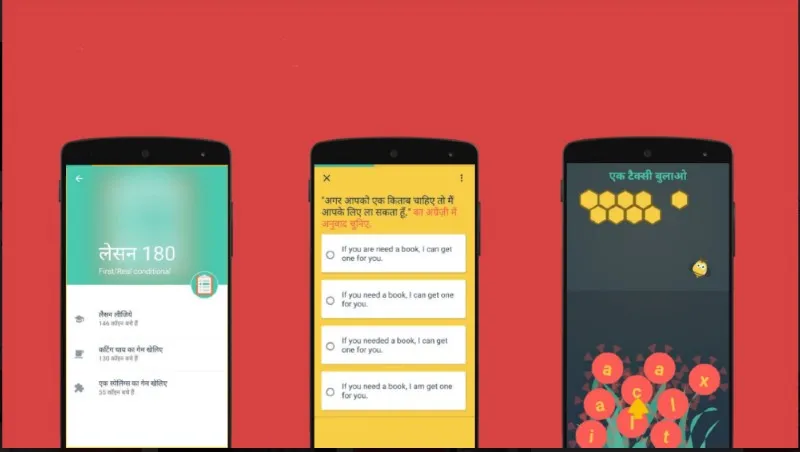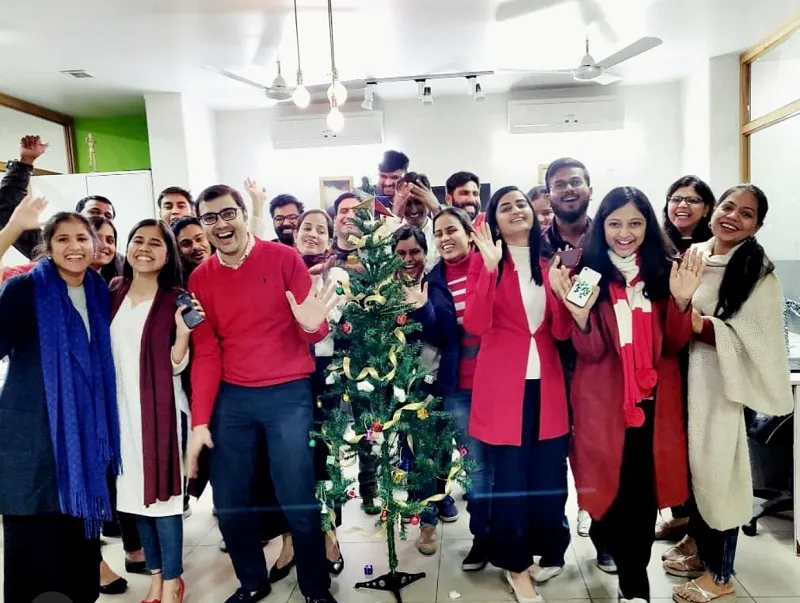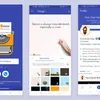50M users, 10M downloads: Hello English’s journey to becoming one of India’s most popular English learning apps
Started by a husband-wife duo, Hello English is on a mission to enable people across the globe to learn the English language as a skill, and is one of the winners of the government's AatmaNirbhar Bharat App Innovation Challenge.
Hello English was recently declared as one of the 24 winners of the government's AatmaNirbhar Bharat App Innovation Challenge. However, its journey to reaching here was eight years in the making.
In the 2011 census, English was accepted for the first time as the second language of India after Hindi. Since then, the estimates suggest that 12 percent of India’s population can speak English (although, not fluently) out of the 800 million in the working age group. According to a 2012 BBC Report, India is second only to the US in terms of the number of English-speaking people.
While many of us can today simply log onto an edtech platform to learn a new skill, the resources to learn the English language in 2012 were limited. Also, as the world becomes more globalised, speaking English has become a mandatory skill for Indian corporates, thus limiting the opportunities for many.
This realisation, coupled with almost two years of market research, became the foundation for husband-wife duo Nishant and Pranshu Patni to start with their entrepreneurial journey. In 2014, the duo launched an English learning mobile app Hello English to enable people across the globe to be able to learn English as a skill.

Hello English app
“You cannot expect your driver to learn this language from a Cambridge book. Hello English thus aims to empower people with this skill irrespective of their age group, language, and geography,” says Pranshu Patni, Co-founder of Hello English, in an exclusive interaction with YourStory.
Almost six years since inception, the app now has a team size of 30, more than 10 million installs on Google Play Store, more than 50 million users, and three million monthly active users, with a 98 percent organic reach. The company has over 14 percent year-on-year revenue growth and is funded by investors like Tiger Global, Rajan Anandan, 500 Startups, and Sasha Mirchandani of Kae Capital.
From learning Mandarin to upskilling with English
The concept of Hello English was ideated first in 2012. Pranshu recalls that her co-founder Nishant was studying business in the US and had to spend some term abroad in China. He wanted to pick up learning Mandarin.
“However, every learning resource was pretty much outdated. While they may help in learning language theoretically, they didn’t help much when it comes to speaking the language,“ Pranshu adds.
Being software engineers, the struggle during this process ignited their interest in solving this problem with technology. The duo first started with a foreign language learning application called Culture Alley. However, they soon realised that learning the English language was a far deeper problem across the world. While someone may learn foreign languages as a hobby, learning English opens doors to growth and opportunities.
“So that's when, in 2014, we rebranded and launched Hello English as a mobile app. And it took off really, really quickly. Within the first couple of weeks, we had 100,000 downloads and even reached the number one spot in the education category,” she reminisces.

Hello English Team
Key products, monetisation and more
Hello English currently has both B2B and B2C offerings. Companies can opt for customised English learning courses for their teams. On the B2C side, there are three core offerings — an app for adults, a variant for kids, and preparation material for competitive exams like IELTS and TOEFL. However, the team’s focus is on leading as a skill learning platform rather a test preparation solution.

Brands using Hello English app
Some key features offered are byte-sized lessons, interactive game-based learning, voice-led practice, offline voice-recognition engines with feedback, AI and adaptive learning capability, and 3D avatars which talk on trending topics in a conversational manner.
It also provides a lot of contextual content such as word meanings, speech-to-text conversion, vernacular translations, language comprehensions, and a lot more. The app for kids contains content to help children pick up English as a first language. It is available for kids aged between two and 10 years, and offers personalised content to make the learning entertaining.

Hello English app screenshots
“Till about a year ago, both platforms used to be self-learning platforms. Now we have a very interactive, data-backed LIVE learning layer on top which enables users to even pair up with educators and learn from them,” says Pranshu.
The LIVE classes are built in an interactive manner with gamified features, leaderboard, real-time Q/A sessions, and more. The subscriptions are monetised, with the basic product available in a freemium model. One can start anywhere between Rs 100 per hour session to a Rs 50,000 - Rs 60,000 yearly courses.

Jobs where Hello English app can help
The Hello English mantra to success
From starting up to facing limited access to capital and mentorship, building the digital infrastructure, and witnessing the acceptance of edtech and online learning — the Hello English founders have experienced it all.
Now the challenge ahead for the team is to penetrate the market very quickly, create high-quality effective products at an acceptable price-point differentiation. Talking about the competition, the founders believe that they have a lot of unique selling points as compared to existing solutions like Bolo, Lingo Kids, DuoLingo, among others. The three key pillars of their success is — vernacular, data and global penetration.
“On the learning side, we are at least 10X larger than any other competition that exists in India. We serve speakers of 23 different vernacular languages who can learn English through our app with over four billion learning data points to improve the final outcomes for the users. We have 100,000 monthly active users on the learning platform for kids. Also, all our content has a built-in focus for India in terms of accent and ability to work with low data connectivity ” claims Pranshu.

Hello English - the vernacular presence
The Hello English app is already active in 150 countries. The founders believe that the recognition received with AatmaNirbhar Bharat App Innovation Challenge will help them gain more credibility in international markets. Also, they plan to increase the team size and strengthen the product further, addressing more genres, and implementing more use cases.
AatmaNirbhar initiative is a responsibility on Indian players to build globally competitive products to ensure that India uses our platform not just because of Made in India tag, but also for the quality and effectiveness received,” she adds.
Edited by Kanishk Singh










